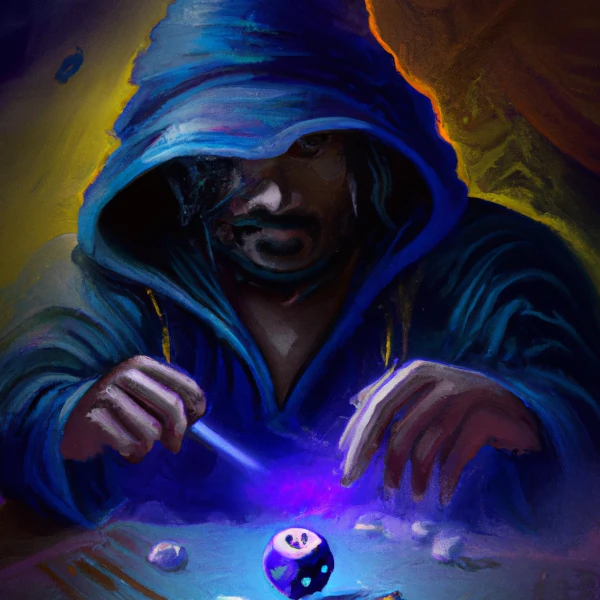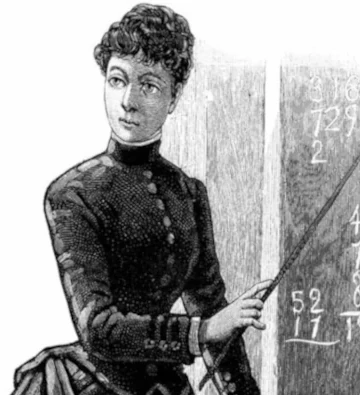Yahtzee for Beginners
The Yahtzee beginner undertakes a beautiful journey into pure mathematics, the excitement of randomness, and the warm camaraderie of fellow players. Newcomers are a breath of fresh air and can spice up a match with their clean slate approach to the game. Fine-tune your karma levels through the simplicity of five dice and a shaker. Yahtzee is a bundle of excitement and an adventure into the unknown, often resulting in a lifelong passion for the game Learning how to play Yahtzee is a joy forever.

Do you remember the first time you played a game of Yahtzee? Maybe as a kid at grandma’s house, on your honeymoon, or playing Yahtzee online, a player’s introduction to the game is a beautiful thing. That nervous anticipation as the dice rattle in the cup. Intense tactical decision-making that will inevitably follow. The pure rationality of mathematics supporting the entire edifice. And the pure unbridled joy of rolling a Yahtzee is what makes the game a unique experience for gamers of all ages.
A player’s very first Yahtzee game should be magical. Logical probabilities, odds and statistics can wait. Direct id stimulation with high doses of pleasure and entertainment should be the primary concern.
But not everyone’s first time is worth remembering. Like a bad trip, losing one’s Yahtzee virginity can often be a confusing mess. But with supportive comrades in dice, the game is sure to become a personal favorite for most open-minded players. Try to anticipate a new player’s needs to ease them gracefully into the game. Some common questions a first-time Yahtzee player might have are:
- What is Yahtzee?
- How do you play Yahtzee?
- What is the objective of the game?
- How do you score points in Yahtzee?
- Can you play Yahtzee by yourself?
- What is a Yahtzee and how do you get one?
- How many dice are used in Yahtzee?
- What is the best way to learn how to play Yahtzee?
- How many turns does each player get in a game of Yahtzee?
- What are the specific rules to follow while playing Yahtzee?
- How many players can play a game of Yahtzee?
- How do you keep track of your score during the game?
- What happens if you roll a Yahtzee and have already filled in the corresponding score box?
Experienced dice rollers who know the Yahtzee score card and rule book like the back of their hand will be able to answer these questions with ease. Use The Yahtzee Manifesto website as a resource if things get complicated. The most important thing is that new players are nurtured so their love of the game can develop naturally. Make the gaming table a safe space for all rollers where the inherent equity and fairness of the game can shine through. A positive and uplifting first experience often leads to a lifelong cherished hobby or even profession.
But the benefits of Yahtzee are immense and varied. The sheer beauty of logic, strategic development, and the unpredictable randomness of chance are but a few. The beginner embarks upon a journey into a new land of dice-based diversion and recreation. Enjoy the ride.
Karma Chameleon

The beginner is a highly interesting player for further observation. A new face can enliven any game of Yahtzee, especially if you are accustomed to playing with the same group of people. But the first-timer can tap into their primal consciousness to uncover entirely new depictions of reality. Maximizing your high score is not an end to itself. On a deeper level, the beginner acts as a karmic weather-vane.
Karma is the concept of life’s moral actions influencing future events. Suffering the consequences or reaping the rewards of one’s own good or bad deeds. In the early phases of Yahtzee exposure, which we will define as being between one and twenty games played or until the player begins to develop a primitive strategy, a beginner’s gameplay typically mirrors the current status of her karma.
Do not think a small sin will not return in your future lives. Just as falling drops of water will fill a large container, the little sins that steadfast accumulate will completely overwhelm you.
- Buddha
A newcomer to Yahtzee falls into one of two categories. Either she does very well or she does very poorly. As is to be expected, the initial results are not due entirely to chance. The condition of the player’s karmic baggage is the primary determinant to her initial success in the game. Yet this is not as simple as saying that a good person will do well in Yahtzee and an evil person will do poorly. The amounts of energy and enthusiasm that are brought to the Yahtzee table will have a direct and immediate effect upon the beginner, and all players in general.
It is not uncommon to see a player score a Yahtzee Bonus in the very first game she has ever played. Often dismissed as beginner’s luck, the phenomenon has deeper roots. Even if she comes to the table unsure of the rules or lacking a basic strategy, provided that she is enthusiastic to undertake a new endeavor, maintains a positive attitude throughout the game, and has the will to succeed, then all of that good karma will manifest itself in the dice.
On the other hand, a player who is reluctant to try Yahtzee, quickly becomes bored with the gameplay, or is too fidgety will not draw upon the karmic forces of the universe, thus yielding a rather lackluster score. It is vital, therefore, when introducing a new player to the game of Yahtzee or if you are considering taking up the game yourself, to approach it with an open mind and a zealous heart. In this manner you can maximize not only your score, but also your overall sense of well-being.
Suffice it to say that when you closely observe the play of a beginner to the game, her life will read like an open book. Dreams, hopes, and deepest fears will all come to the surface. Due to the level of inexperience, the beginner will not realize that Yahtzee is a powerful tool for reaching true self-awareness. Except in the natural born Yahtzee player, the beginner will fail to utilize the introspective powers of the game and treat it as simply as a trivial pursuit. The rest of us must pursue the game with diligence and a calm mind.
Changing Every Day

There are several reasons why someone might want to get into the game of Yahtzee:
- It is a simple and easy-to-learn game: Yahtzee is a dice game that is simple to understand and easy to play, making it accessible to people of all ages and skill levels.
- It is a game of strategy and luck: Yahtzee combines elements of strategy and luck, making it a challenging and engaging game for players.
- It can be played with friends and family: Yahtzee is a social game that can be played with friends and family, making it a fun way to spend time with loved ones.
- It can be played in different variations: Yahtzee can be played in different variations and with different themes, making it a versatile game that can be enjoyed in a variety of ways.
- It can be played on different platforms: Yahtzee can be played on physical board games, mobile apps and online, making it easy to play anywhere and anytime.
- It can be played alone: Yahtzee can also be played alone as a solo game, making it an enjoyable way to pass the time.
- It can improve cognitive abilities: Playing Yahtzee can help to improve cognitive abilities such as problem-solving, critical thinking, and strategic planning.
Yahtzee is a fun and engaging game that offers a mix of strategy and luck, and can be enjoyed by people of all ages and skill levels. It's a great way to spend time with friends and family, and it can also help to improve cognitive abilities.
It’s beautiful to watch a beginning Yahtzee player blossom into an expert, as advanced new strategies and styles are incorporated into their games. Experience grows knowledge of local playing conditions, rolling surfaces, and game equipment. Implementation of house rules can lead to a home-field advantage.
Yahtzee can easily become a daily habit, but it’s the rare addiction that only only has upsides. So go ahead and get hooked. Play every day if you can, either tabletop or Yahtzee online. Your game will mature more quickly but mastery only comes with time and playing powerful opponents with varying styles of play.
Unless one identifies the beginner as a natural, no effort should be made to indoctrinate her in the subtleties of the game or its intimate relations to karma and the psyche as this may prove to be overwhelming. In dealing with the beginner, it is most prudent to let her Yahtzee prowess develop on its own accord. If she fails to develop a passion for the game, do not force the issue.
In most cases, the beginner is not at an appropriate stage of spiritual development or she fears using Yahtzee as a looking-glass into her soul. Given time, and with a bit of luck, our beginner will mature and return to the game with a renewed sense of vigor. What is Yahtzee? The bottom line is to have fun. Learn how to play Yahtzee and then develop the game at your own pace. And consider and cosmic insights to be icing on the cake!
How to Play Yahtzee Step-by-Step
Yahtzee is a classic dice game enjoyed by millions. Whether you're a beginner or looking for a quick refresher, this guide provides a clear and comprehensive overview of how to play Yahtzee. Get ready to roll your way to victory!
Objective
The goal of Yahtzee is to score the most points by strategically rolling five standard six-sided dice to create specific combinations. These combinations correspond to categories on your scorecard, and each category has a unique point value.
Equipment
- 5 six-sided dice: Standard dice with faces numbered 1 through 6.
- Dice cup or shaker: Used to randomize the dice rolls. While not strictly necessary, it adds to the traditional gameplay.
- Scorecard: A sheet of paper (often provided in Yahtzee game sets) with columns for each player and rows for each scoring category.
- Pencil: For recording scores on the scorecard.
Gameplay: Your Turn to Roll!
- Initiate Your Turn: On your turn, you begin by rolling all five dice at once.
- The First Re-roll (Optional): After the initial roll, you have the option to set aside any number of dice you are satisfied with. You then re-roll the remaining dice. This is your first re-roll.
- The Second Re-roll (Optional): Following the second roll, you again have the choice to keep any dice and re-roll the others. This is your second and final re-roll for the turn.
- Maximum Three Rolls: You are allowed a maximum of three rolls per turn. You can choose to stop after the first or second roll if you are happy with the outcome.
- Scoring Your Roll: After your final roll (or after deciding to stop rolling), you must select one of the unfilled scoring categories on your scorecard and record the points earned (if any) for that roll in that category.
- One Category Per Turn: Once a scoring category has been filled, it cannot be used again for the rest of the game.
- Forced Zero: If your final roll does not match the requirements of any of the remaining unfilled categories, you are still required to choose a category and enter a score of zero in it. This adds a strategic element to the game, as you must sometimes sacrifice a potentially valuable category.
Scoring Categories: Aim for Those High Scores!
Upper Section: Focusing on Individual Numbers
The Upper Section involves scoring based on the number of times each individual die face appears.
- Ones (Aces): Score the sum of all dice showing the number 1.
- Twos (Deuces): Score the sum of all dice showing the number 2.
- Threes (Treys): Score the sum of all dice showing the number 3.
- Fours: Score the sum of all dice showing the number 4.
- Fives: Score the sum of all dice showing the number 5.
- Sixes: Score the sum of all dice showing the number 6.
Upper Section Bonus: If the total score in your Upper Section (sum of Ones through Sixes) is 63 points or more, you receive a bonus of 35 points. This bonus can significantly impact your final score, so aiming for higher numbers in the Upper Section is often a good strategy.
Lower Section: Combinations and Luck!
The Lower Section features categories that require specific combinations of dice.
- Three of a Kind: You need at least three dice showing the same number (e.g., three 4s). The score is the sum of all five dice.
- Four of a Kind: You need at least four dice showing the same number (e.g., four 2s). The score is the sum of all five dice.
- Full House: This requires exactly three of one number and two of another number (e.g., three 6s and two 1s). It always scores a fixed 25 points.
- Small Straight: You need at least four dice in sequential order (e.g., 1-2-3-4, 2-3-4-5, or 3-4-5-6). It always scores a fixed 30 points.
- Large Straight: You need all five dice in sequential order (either 1-2-3-4-5 or 2-3-4-5-6). It always scores a fixed 40 points.
- Yahtzee: This is the best possible roll! All five dice must show the same number (e.g., five 3s). It scores a fixed 50 points.
- Chance: This category can be used for any combination of dice. The score is the sum of all five dice. It's often used as a fallback when you can't score well in other categories.
Game End and Victory
The game concludes after all 13 scoring categories on every player's scorecard have been filled. Players then tally their total scores from both the Upper and Lower Sections. The player with the highest total score at the end of the game is declared the winner!
Your Yahtzee Journey Begins
Learning how to play Yahtzee is more than memorizing rules - it's about embracing the unpredictability of the dice, the thrill of scoring big, and the joy of playing with others (or even alone). If you've made it this far, you already have the foundation, and you’re well on your way from Yahtzee for dummies to confident player.
Can you play Yahtzee by yourself? Absolutely. Solo play is a great way to sharpen your skills, experiment with strategies, and enjoy a relaxing game at your own pace. Whether you're rolling solo or with friends and family, every game is a chance to learn, grow, and maybe even score that elusive Yahtzee.
So grab your dice, keep your karma positive, and roll on. Your next Yahtzee is just a shake away.





